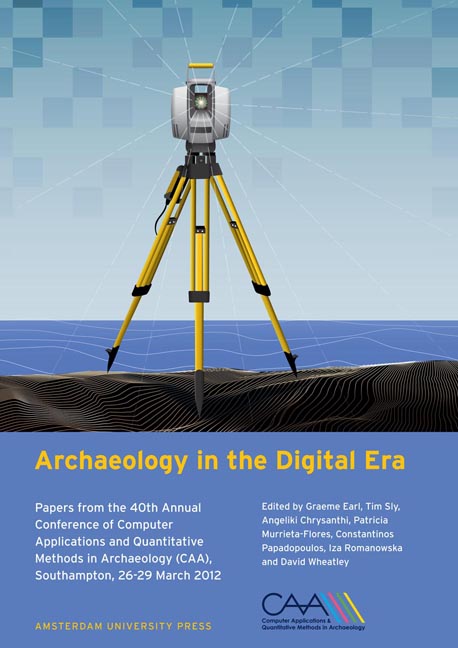 Archaeology in the Digital Era
Archaeology in the Digital Era Published online by Cambridge University Press: 16 February 2021
Abstract:
This paper details a current project at the American Numismatic Society: Online Coins of the Roman Empire (OCRE), an open-access catalogue of Roman Imperial coin types. The paper discusses linked data approaches applied to numismatic collections, the application architecture of the project, and the practical functionality of the project's web interface, illustrating its value to researchers.
Keywords:
Linked data, Information Architecture, Numismatics
Introduction
This paper describes a series of related initiatives to publish Roman coins—the basic material of the discipline of Roman numismatics that works to place coins in their historical and economic context—on the Internet using practices and methods that draw on the “Linked Data” approach to access and re-use of internet-based resources. The components of the work described here are: Nomisma.org, a digital resource that establishes stable URIs for numismatic concepts, with a current focus on both Greek and Roman coins; Numishare, a software platform for the management of numismatic data that supports linked data approaches; Online Coins of the Roman Empire (OCRE), a project recording and publishing all the known types of coins issued by the Roman Empire, accessible at http: //numismatics.org/ocre/. While all of these projects are publicly available, they continue to be under active development. In combination they demonstrate the power of stable links between high-quality structured data.
In its capitalised form - that is as a defined set of practices - “Linked Data” is “a term used to describe a recommended best practice for exposing, sharing, and connecting pieces of data, information, and knowledge on the Semantic Web using URIs and RDF.” In this paper we focus on three aspects of Linked Data and describe how we implement them within the field of Roman coinage. Those three aspects are: stable URIs for each component of the study of coins, meaning URIs for descriptions of coin types, and for the vocabulary terms we use to describe those coins; availability of machine parsable data via those URIs; and rich re-use and interlinking between separate datasets that allows both cross-project efficient and discovery.
Coinage, as one of the ancient world's few examples of a mass-produced medium, is an excellent disciplinary laboratory—so to speak—in which to implement the concepts of Linked Data.
To save this book to your Kindle, first ensure no-reply@cambridge.org is added to your Approved Personal Document E-mail List under your Personal Document Settings on the Manage Your Content and Devices page of your Amazon account. Then enter the ‘name’ part of your Kindle email address below. Find out more about saving to your Kindle.
Note you can select to save to either the @free.kindle.com or @kindle.com variations. ‘@free.kindle.com’ emails are free but can only be saved to your device when it is connected to wi-fi. ‘@kindle.com’ emails can be delivered even when you are not connected to wi-fi, but note that service fees apply.
Find out more about the Kindle Personal Document Service.
To save content items to your account, please confirm that you agree to abide by our usage policies. If this is the first time you use this feature, you will be asked to authorise Cambridge Core to connect with your account. Find out more about saving content to Dropbox.
To save content items to your account, please confirm that you agree to abide by our usage policies. If this is the first time you use this feature, you will be asked to authorise Cambridge Core to connect with your account. Find out more about saving content to Google Drive.